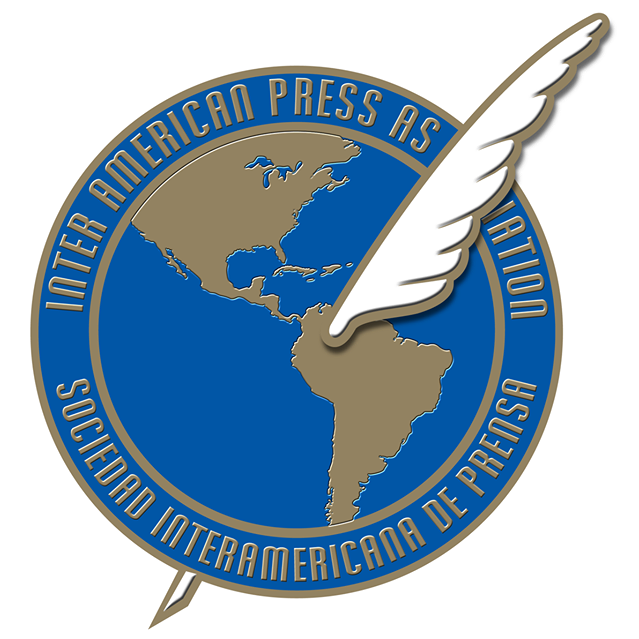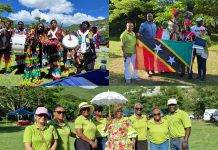MIAMI, USA — The Inter American Press Association (IAPA) on Friday voiced a complaint that Venezuela is one of the countries in the Americas with most legal proceedings against journalists and news media, a mechanism used by the government, officials and state bodies to halt the dissemination of independent information and give rise to self-censorship.
The most recent incident involves the newspaper El Nuevo País, whose owner, Rafael Poleo, and a group of the news media outlet’s journalists were sued by the president of the state-owned oil company Petróleos de Venezuela SA (PDVSA), Eulogio del Pino, in mid-October on a charge of constant aggravated defamation, with the request that the court prohibit the newspaper from reporting about PDVSA.
In addition to Poleo (in exile since 2009) the lawsuit also was filed against editorial board members Graciela Requena and Jurate Rosales, reporter Camilo Rey Luna and general supervisor Luis Camacho, all of whom are prohibited from leaving the country.
Another 44 journalists, news media executives and private citizens have been facing legal action since 2013, accused by the authorities of the offenses of defamation, libel, domestic violence, dispute over property ownership, legitimizing of assets, offence to the armed forces and dissemination of false information.
The editor of the Caracas newspaper El Nacional, Miguel Henrique Otero, who is also facing several lawsuits for alleged defamation, declared that “the harassment of journalists and media is every day worse in Venezuela. All the journalists that have been subjected to criminal proceedings and precautionary measures continue under the same conditions, in fact, they are on the increase.”
“To this situation,” said Otero, regional vice chairman of the IAPA’s Committee on Freedom of the Press and Information, “there should be added the excessive increase in repression of opponents and journalists, these latter regarded as serious enemies of the Bolivarian Revolution. Whoever has a camera or smart phone runs the risk of being brutally attacked by the repressive forces or paramilitary collectives. The few spaces of freedom of information that remain in the country are in grave danger of disappearing.”
IAPA president Matt Sanders, senior director and general manager of Deseret Digital Media in Salt Lake City, Utah, called attention to what he regarded as “an alarming industry of lawsuits brought by the Venezuelan authorities to amputate even more the independent press that in the country is facing numerous grievances.”
For his part Roberto Rock, chairman of the IAPA’s Committee on Freedom of the Press and Information, editor of La Silla Rota, Mexico City, Mexico, added, “The case of the Venezuelan media accused of committing alleged offenses also has the disadvantage of their having to face a system of justice without independence.”
The editor of the newspaper Correo del Caroní, David Natera, charged with defamation and libel, was sentenced earlier this year to four years imprisonment with prohibition from leaving the country. He has to present himself to the court every 30 days, he was prevented from working, is subject to surveillance for one fifth of the length of his sentence, and the newspaper was ordered to abstain from publishing information about a case of corruption.
Also charged with defamation and libel were the newspapers El Diario de Los Llanos, La Prensa and La Noticia, members of Congress Ismael García and Carlos Eduardo Berrizbeitia Giliberti and former member of Congress Carlos Humberto Tablante Hidalgo.
The only journalist being held in prison in Venezuela is Braulio Jatar, director of the portal Reporte Confidencial, arrested on Margarita Island on September 3. Jatar, 58, who has dual Chilean and Venezuelan nationality, was accused of “legitimizing of assets,” an offence that carries with it 10 to 15 years’ imprisonment.
The arbitrary arrest of the journalist, who is now in a maximum security prison subjected to poor treatment and whose case was made public by his sister, Ana Julia Jatar, in Mexico City during the IAPA General Assembly, is regarded as a retaliation for disseminating information about and videos of local anti-government demonstrations.
The Inter-American Commission on Human Rights (IACHR) and its Office of Special Rapporteur for Freedom of Expression recently condemned actions by the Venezuelan government, among these the continual use of criminal law and other state controls to punish or prevent the work of the critical press, aimed at shutting down spaces of participation and prosecuting those who have exercised their right to freedom of expression.































